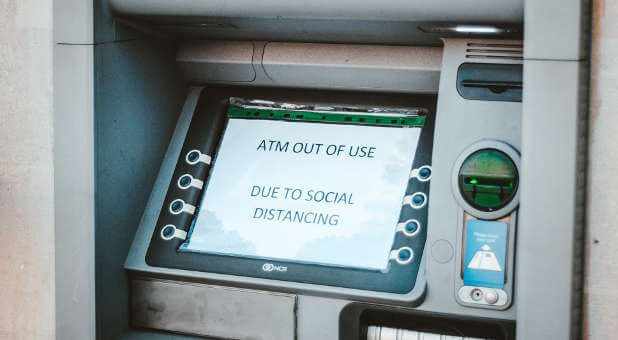During the coronavirus panic, we were told to stay away from crowds, avoid handshakes, avoid travel, use plenty of sanitizer and live in isolation. Introverts probably loved this, but I was miserable. I couldn’t visit my mother in her nursing home, I had to cancel trips, and a friend’s father’s funeral was postponed. I know we have to use wisdom to avoid contagion. But I was sad when churches had to cancel meetings and stream online. Watching church on a screen is not the same as sitting next to human beings who ask you how you are doing, offer hugs and tell you they love you.
My wife and I started visiting different churches a few months ago. We are in search of a place to call home. This isn’t an easy process for a traveling minister like me. I’m gone many weekends, so I can’t commit to certain duties at a local church, and I don’t feel as connected as those who are there every week.
But I need a place to belong, where I can hear God’s Word and experience the support of a spiritual family. During our recent journey, we’ve visited all kinds of churches—Baptist and Bapticostal, charismatic and evangelical, denominational and non-denominational. We’ve been in black, white and blended churches; we’ve attended churches with older congregations as well as a church with lots of excited teens who crowd the altar during worship. What I’ve seen during our spiritual tour of Troup County, Georgia, has encouraged me so much. I’ve experienced God’s family in all of its diversity, with all of its quirks and warts and weaknesses. I’m certainly not looking for a perfect church. (And I know if there were such a thing, it wouldn’t remain perfect once I joined it.)
What thrills me is that, even though churches aren’t perfect, God has placed His special people everywhere. No matter where I go all over the United States, there are faithful congregations providing a witness of Jesus Christ. They are winning new converts, discipling new believers, feeding the homeless, running women’s shelters, giving out book bags at schools, evangelizing college campuses, caring for prisoners, providing counseling services and sending teams on foreign mission fields. And during the coronavirus crisis these same churches offered free lunches to students affected by school closures and provided other services to people who were falling through the cracks.
Many American churches today have big struggles. We can’t meet our budgets; we can’t recruit enough volunteers; we want to grow, but we watch people leave through the back door. Some of our leaders struggle with depression. And often our witness is tainted by hypocrisy. Yet God still dwells in the midst of His flawed people, in good times and bad.
I hear lots of complaints about church. Some people have even given up on it. People gripe about music styles, sermon length, meeting times or an unpopular decision by the pastor. Sometimes people just get offended at another church member and storm out. Since the global church began 2,000 years ago, we’ve been tossed and battered by theological divisions, heresies, immature leadership, strife, scandal, gossip and—maybe the worst problem—spiritual complacency that has quenched the fire of the Holy Spirit.
And yet the church survives. With all of our problems, the gates of hell have not prevailed against us. Today I’m so thankful that Jesus dwells among His people. He speaks to us when we gather, whether we meet in a 5,000-seat megachurch, a traditional building with pews, a converted warehouse, a movie theater or a home with seating for only 10 worshippers.
Psalm 84:1-2a (NASB) says, “How lovely are your dwelling places, O Lord of hosts! My soul longed and even yearned for the courts of the Lord.” You won’t yearn for God’s house if you don’t first realize how lovely it is. Don’t focus on the problems or nitpick about things you want to change. Instead, embrace the people who provide your spiritual support network as a gift from the Lord. Psalm 122:1 says, “I was glad when they said to me, ‘Let us go to the house of the Lord.'” Do you love the church? Or have you distanced yourself from God’s people? Once the coronavirus scare is over, don’t find another excuse to keep your distance. If you love God, you must also love His people. I encourage you to rediscover why God created you for community.
Lee Grady was editor of Charisma for 11 years and now serves as contributing editor. He directs The Mordecai Project (themordecaiproject.org), an international ministry that protects women and girls from gender-based violence. His latest book is Set My Heart on Fire (Charisma House).
CHARISMA is the only magazine dedicated to reporting on what the Holy Spirit is doing in the lives of believers around the world. If you are thirsty for more of God’s presence and His Holy Spirit, subscribe to CHARISMA and join a family of believers that choose to live life in the Spirit. CLICK HERE for a special offer.











































